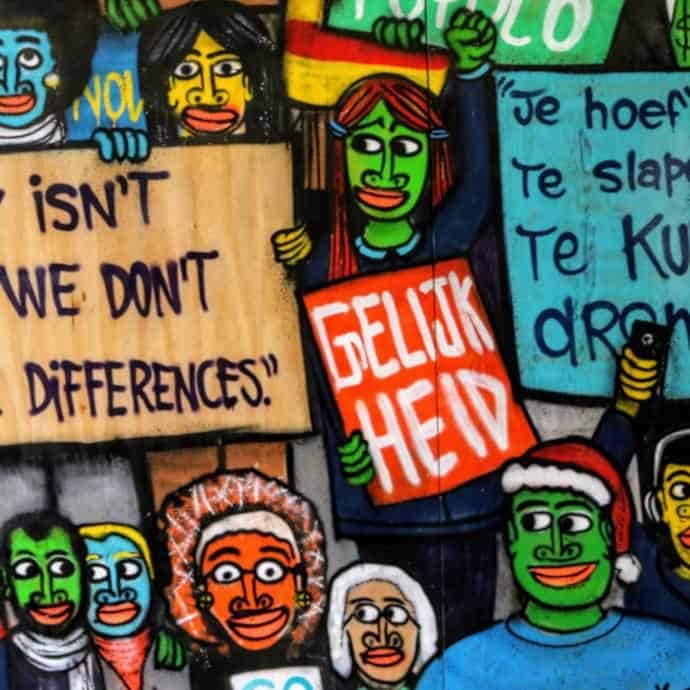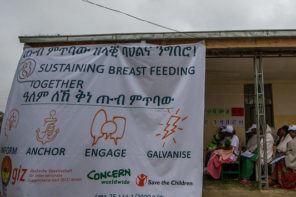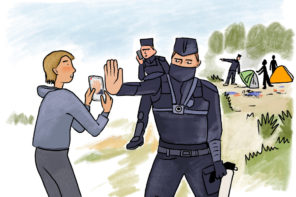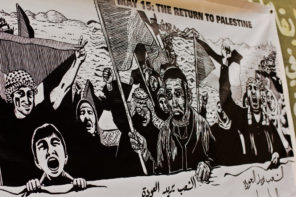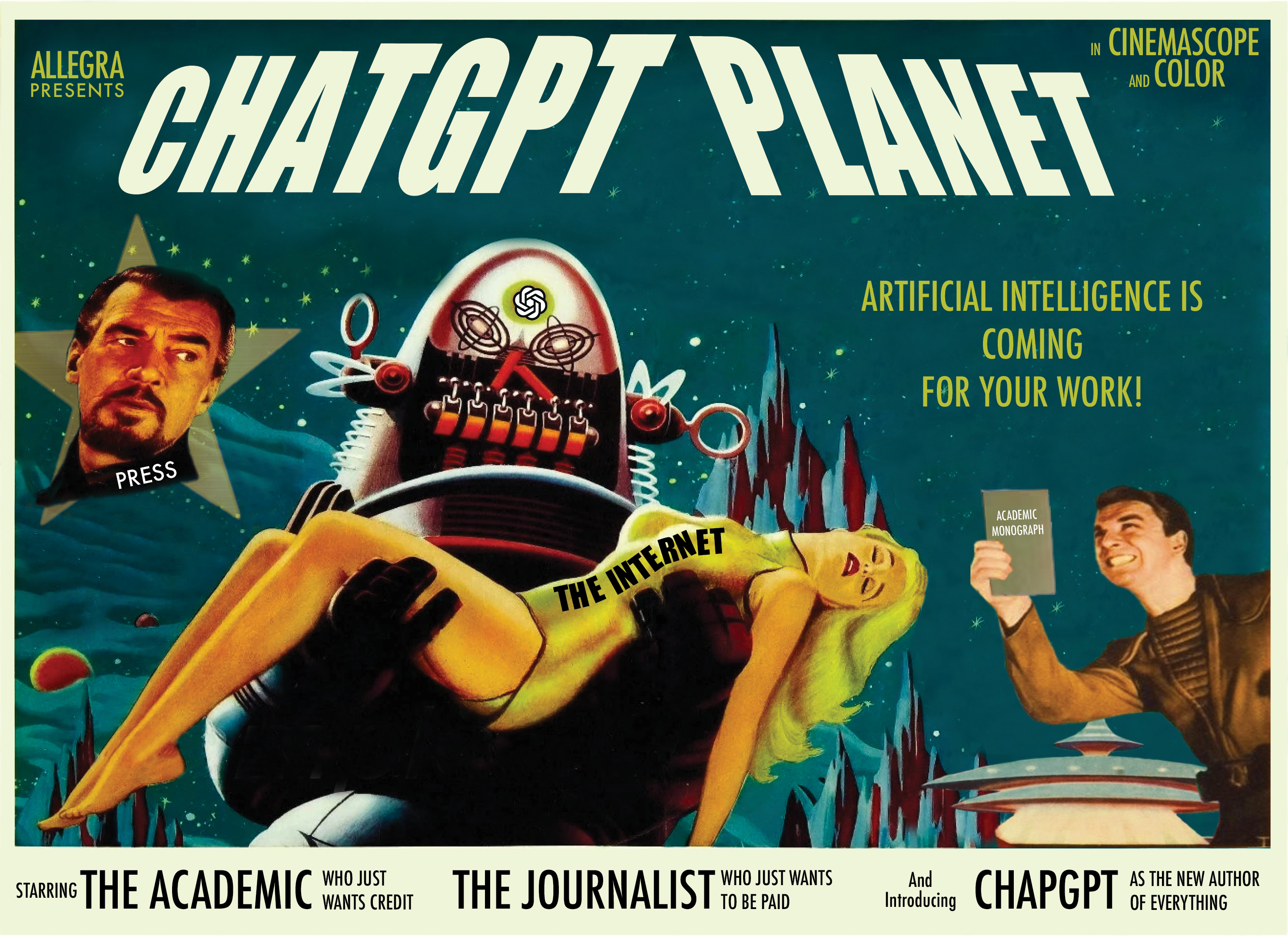Justin Oakley and Michael Selgelid
Editors in Chief, Monash Bioethics Review
Monash Bioethics Centre
Menzies Building
20 Chancellors Walk
Clayton Campus
Monash University
VIC 3800
Sydney, 20 November 2018
Dear Professors Oakley and Selgelid,
We are writing to you as the Australian Critical Race and Whiteness Studies Association to express concern about the publication in the Monash Bioethics Review of an article entitled ‘Defending Eugenics’ by Jonathan Anomaly.
In our view, this article normalizes a practice that has been, and continues to be, associated with the discipline and punishment of racialised people since the 19th century when it was first suggested by Francis Galton, a ‘race scientist’ whose ‘spirit’ the author wishes to ‘reclaim’ in the interests of reducing the ‘consequences of people reproducing at random.’
The author attempts to avoid the charge of racism by arguing that the virtues of eugenics should not be tempered by the ends to which these ideas were put by the Nazis during the Holocaust. There are a number of problems with this proposition which we would like to outline:
- It is impossible to dissociate an idea from the context in which it emerged and the practices which it led to. The very idea of manipulating the population in order to attempt to facilitate a ‘eugenic utopia’ comes to fruition within the context of European colonialism, and the increased power of European states to quantify and manage populations. The main targets were the poor, the disabled and those considered racially ‘inferior’.
- Anomaly’s discussion of the Holocaust attempts to avoid racism by making the argument that it was ‘dysgenic’ to eliminate the Jews as ‘arguably among the most intelligent and productive people of the twentieth century.’ Such an argument, while attempting to avoid racism, still operates with racially essentialist terms by generalizing about all Jews; it is notable too that Jews of colour are omitted from Anomaly’s claims.
- Anomaly clearly believes in race differences, arguing that it was only the ‘the racist direction the eugenics movement took in the United States and Germany’ that led scientists to ‘deny that races exist.’ It is our contention that it is impossible to disentangle the belief that the human population can be divided into so-called races from the injustices that continue to be associated with that belief. And in the specific case of the article, it is impossible, to argue that races exist while claiming that one’s proposal to introduce eugenics into policy making is not racist.
- Eugenic practices of the type discussed by Anomaly in the paper, are still in practice. The author believes that the language of eugenics was merely used to mask the ‘morally abhorrent policies and pseudo-scientific claims’ of the Nazis. However, eugenics principles were applied much more widely than that. In our context here in Australia, the Eugenics Society of Victoria was in operation until 1961. The practice of removal of Aboriginal children, which is still ongoing, reaching unprecedented levels today, has its roots in eugenics as its ultimate aim was the control of the Aboriginal population. The practices of forced sterilisation are still in use against Indigenous women in Canada for example. Dorothy Roberts has documented the extent to which the US welfare system has been restructured to inhibit the reproductive freedoms of poor Black women (https://penntoday.upenn.edu/research/revisiting-killing-the-black-body-20-years-later). Therefore, the policy proposals, presented by Anomaly, to improve what he calls the troubling ‘current demographics of Western countries’ are not mere hypotheticals.
- In fact, Anomaly makes clear what troubles him when he remarks that pronatalist policies put in place by the Swedish state have resulted in higher births among those of Somali origin rather than ‘native-born Swedes.’ He also makes reference to ‘impulse control’ as hereditary, an argument also made by the conservative US publication, The National Review, which argued that Black children had less impulse control than white children, thus justifying their exclusion from school. Therefore he cannot claim that racism does not motivate his argument.
At a time when so-called ‘race realism’ is booming, despite being thoroughly debunked by the great majority of scientists, the scholarly community must take responsibility for the ideas it endorses. There are serious questions to be answered about how an article that proposes that ‘future people would be better off if people with heritable traits that we value had a greater proportion of children’ passed peer review.
It is our view that there is absolutely no way of separating the notion of there being ‘more valuable heritable traits’ from the fact that modern western societies have associated value with whiteness, abled-bodiedness and prosperity to the detriment of racialised people, the disabled and the poor.
We seem to have entered a phase in academia and public life where debate for its own sake has trumped any commitment to the principle of protecting those most vulnerable and creating the conditions for a more just society for all. As critical race scholars who are only too painfully aware of the practices to which ideas of race have been put, we suggest that it is never the time for an article that defends eugenics to be published in a reputable international scientific journal.
We hope that you will consider this letter and take the necessary steps to address the processes of peer review that led to this misguided decision.
Yours sincerely on behalf of the Australian Critical Race and Whiteness Studies Association
Alana Lentin
Associate Professor, Western Sydney University and ACRAWSA President (2017-19).
Additional signatures:
Jonathan Kaplan, Oregon State University
Elaine Swan, University of Sussex, UK.
Dr Sharlene Leroy-Dyer
Dr. Maria Elena Indelicato
Evelyn Araluen, University of Sydney
Dr. Ameil J. Joseph
Dr Jordy Silverstein, Postdoctoral Research Associate, SHAPS, University of Melbourne
Dr Joanne Faulkner, Macquarie University
Matt Mason
Melanie Ostell
Robin M Eames
Jane Park, University of Sydney
Dylan Weinberger
Anna Carastathis, Ph.D., Postdoctoral Researcher, Department of Social Anthropology, Panteion University, Athens, Greece
Ronit Lentin
Jason Gray
Dr. Sunny Singh
Rebecca Kukla, Professor of Philosophy and Senior Research Scholar in the Kennedy Institute of Ethics, Georgetown University
Claudia Malacrida, PhD
Kathleen Mary Collins
Melinda C. Hall
Zoé Samudzi
Shelley Tremain
Zoe Lawlor
Terri E. Givens
Estée Klar
Amina Jamal, PhD Associate Professor Department of Sociology Faculty of Arts, Ryerson University
Dr. Meenal Shrivastava, Professor & Chair, Centre for Social Sciences, Athabasca University
Katherine Ellinghaus
Malory Nye
Amy Thunig
Tristan Ryan
Lauren Bull
Dr E Brayshaw
Tereza Hendl
Michelle Cahill
Tim Busuttil
Mari Kain
Tom Lynch
Dr Albert Atkin, Macquarie University.
Carolyn D’Cruz, La Trobe University
Ryan Al-Natour
Bethany Phillips-Peddlesden
Karen Schamberger
Aurelien Mondon, University of Bath
Bev Henwood
George Morgan, Western Sydney University
Robbie Fordyce
Suneel Jethani
Caitlin McGrane
Kate Mannell
Ghassan Hage, University of Melbourne
Jane Ku, University of Windsor
Alex Page
Lauren Stinson, University of New South Wales student
Lyn Bender – psychologist
Supporter
Lana Tatour, University of New South Wales
Fiona
Sadhvi Dar, Queen Mary University of London, UK
Dr Lisa Tilley, Birkbeck, University of London
Julie Billaud
Wulf D. Hund, Professor Emeritus, University of Hamburg
Sarah Bracke, Associate Professor, University of Amsterdam
Sara Salem, LSE
Karim Murji, University of West London, UK
Stefanie Affeldt, Ruprecht-Karls-University Heidelberg
Gurminder K Bhambra, University of Sussex
William Scates Frances
Dr Nivi Manchanda
Akanksha Mehta, Goldsmiths, University of London
Felix Mantz, Queen Mary University of London
Dr Rick Saull, Queen Mary, University of London
Sara Farris, Goldsmiths, london
Ajay Parasram, Dalhousie University
Ida Birkvad, QMUL, University of London
Lucia Sorbera, The University of Sydney
Sharri Plonski, Lecturer in International Politics, Queen Mary University of London
Paige Donaghy
Jean Beaman, Purdue University (USA)
Aaron Winter. Senior Lecturer in Criminology, University of East London
Shamira A. Meghani, University of Leeds
Ella Whiteley, University of Cambridge
William Rooke, LSE
Mariya Nikolova, RTG Minor Cosmopolitanisms
Jonathan Kaplan, Oregon State University
Roberta Millstein, UC Davis
Robert A. Skipper, PhD.
Robin Dunford, University of Brighton
Joe Shaughnessy, Doctoral Student, University of Cambridge UK
Nicola Pratt, University of Warwick, UK
Alina Sajed, McMaster University
Macquarie University
Debbie Bargallie, Senior Lecturer, Griffith University
Massimo Amerena, PhD Candidate Moondani Balluk Academic Unit, Victoria University
Matthew Davis
Ina Roy-Faderman, M.D., Ph.D. , Oregon State University
Gabrielle Ayles
Tony Chemero, Departments of Philosophy and Psychology, University of Cincinnati, USA
Associate Professor Cristina Rocha Western Sydney University
Dr Lauren Piko
Anja Kanngieser, Vice Chancellor’s Research Fellow, University of Wollongong
Dr Sara Dehm, Lecturer, Faculty of Law, University of Technology Sydney
Oznur Sahin, Institute for Culture and Society, Western Sydney University
Dr Eleanor Byrne, Manchester Metropolitan University UK
John Pike, University of South Australia
Jess Bier, Erasmus University Rotterdam
James Trafford, University for the Creative Arts
Sithembile Mbete, Lecturer, University of Pretoria
Olivette Otele
Tanya Stul
Amrita Tarr
Ben Etherington, Western Sydney University
Lobna Yassine, social worker
Mick Caranx
Milena Doytcheva, University of Lille FRANCE
W.A. Baldwin, Durham University
Andy Fugard, Birkbeck, University of London
Jasmine K. Gani, Senior Lecturer, University of St Andrews
Stephen Ashe
Dylan Kerrigan, Lecturer University of the West Indies
Jasbinder S. Nijjar, Brunel University London
Aytak Akbari-Dibavar, York University
Danielle Young, University of the Ozarks
Simon Dawes, Université de Versailles Saint Quentin en Yvelines, France
Dr John Narayan, Birmingham City University
Bethan Harries, University of Manchester
Keryn Hassall
Philip S. S. Howard, McGill University, Montreal, QC, Canada
Souheir Edelbi, University of New South Wales
Heather Porter- Doctoral Student, Islamic Studies & Gender and Women’s Studies, McGill University
Srdjan Vucetic, University of Ottawa
Sarah Owens, McGill University
Bev Henwood
Cameron Smith, Macquarie University
Cammi Murrup-Stewart, Monash University
Sarah Lloyd
Gerald Roche, La Trobe University
Dr. Fatima Rajina
Dr Naaz Rashid, University of Sussex
Sean McMorrow, University of Melbourne
Ahmad Naman
Ralph Dorey, Northumbria Univeristy
Bee Spencer, Swinburne University of Technology
Patrick Reinhart Schwemmer, Musashi University
Don MacKeen, Lecturer
S.J. Adrienna Joyce, PhD Student, McGill University
Scott Brownlee
I Jin Jang, Universitat Jaume I
Egidio de Bustamante, Universitat Jaume I – Spain
Horatiu Halmaghi, MA Candidate McGill University
Alison Whittaker, UTS Jumbunna Institute
Fiona Belcher, University of Melbourne
Renata Tuccitto
Charlotte Sefton, Institute of Arab & Islamic Studies, University of Exeter
Dr Shane Hopkinson
Catia Malaquias, Starting With Julius
Kate de Bruin, Monash University
Rayna Lamb
Dr David Singh
Liz Grandmaison, Postgraduate Student, Flinders University
Francis Markham, Australian National University
Nathan Dick
Lonnie Gonano
Dr. Hariati Sinaga
Di Samuels Family Advocate
Carol Que
Associate Professor Peter Anderson Queensland University of Technology
Dr Robert Jackson
Cait
Keith Murfee-DeConcini, Disability advocate, United States of America
James Sheldon, PhD student, University of Arizona
Iain Childerhose, McGill University
David Mills
Ryan Cole, sex worker
Louise Mead
Dr Thomas Ryan
Matthew Horsley, PhD candidate, Monash University
Jill Martin
Lexi Brent, The University of Sydney)
Millie Andrews
Kevin Sharpe
Chere
Nicholas Mirzoeff, Professor, NYU
Dr Paola Crespi, Research Fellow, Goldsmiths College
Brianna Zimmerman
- Roberts
Christopher Nagle, Western Michigan University
Gabriella Coleman, McGill University
Samantha Asumadu, founder of Media Diversified

